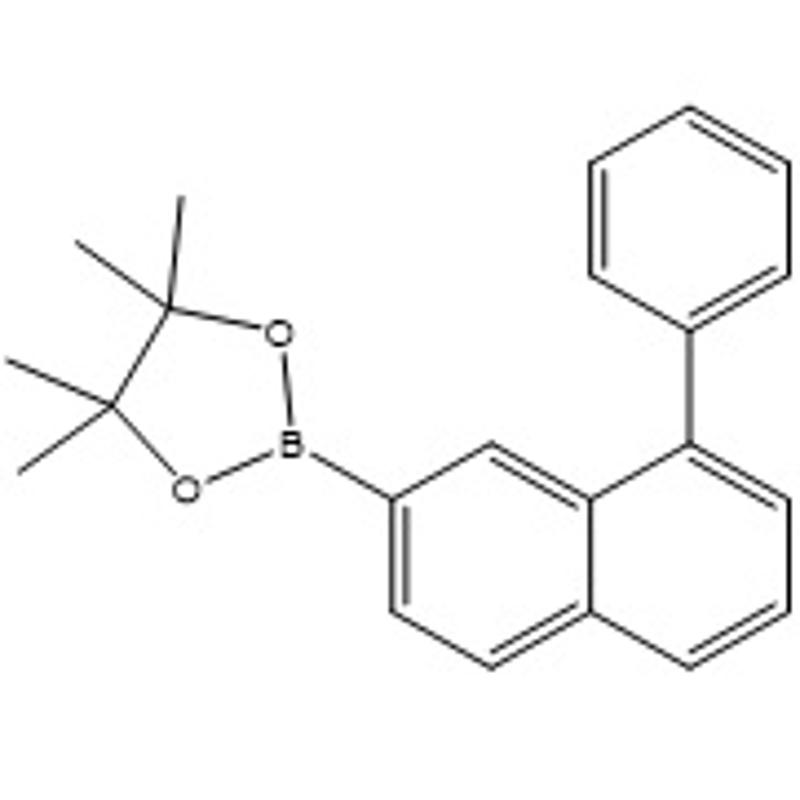-
Categories
-
Pharmaceutical Intermediates
-
Active Pharmaceutical Ingredients
-
Food Additives
- Industrial Coatings
- Agrochemicals
- Dyes and Pigments
- Surfactant
- Flavors and Fragrances
- Chemical Reagents
- Catalyst and Auxiliary
- Natural Products
- Inorganic Chemistry
-
Organic Chemistry
-
Biochemical Engineering
- Analytical Chemistry
-
Cosmetic Ingredient
- Water Treatment Chemical
-
Pharmaceutical Intermediates
Promotion
ECHEMI Mall
Wholesale
Weekly Price
Exhibition
News
-
Trade Service
3,6-Difluoro-2-pyridinecarbonitrile, also known as DCN, is a highly toxic and highly flammable liquid chemical that is commonly used in the chemical industry.
It is a colorless liquid with a strong unpleasant odor, and it is highly soluble in water.
DCN was first synthesized in the 19th century, and it has since been used in a variety of industrial applications.
One of the primary uses of DCN is as a reagent in the production of other chemicals.
For example, it is used in the production of dyes, pigments, and other industrial chemicals.
It is also used as a solvent in the manufacture of certain types of adhesives and coatings.
Despite its widespread use in the chemical industry, DCN is also recognized as a highly hazardous substance.
It is classified as an extremely toxic substance by the World Health Organization and the U.
S.
Environmental Protection Agency.
This classification is based on its ability to cause serious health effects, including death, through inhalation, ingestion, or skin contact.
One of the most significant risks associated with DCN is its ability to causes skin burns and blistering.
Prolonged contact with the skin can lead to severe damage, and even death.
Additionally, DCN is highly flammable, and it can easily ignite when exposed to heat, sparks, or other sources of ignition.
DCN is also highly toxic when ingested.
It can cause a range of serious health effects, including respiratory failure, heart failure, and death.
In addition, it can cause damage to the liver, kidneys, and central nervous system.
The potential risks associated with DCN highlight the importance of proper handling and storage practices in the chemical industry.
It is essential that workers who handle DCN are thoroughly trained in its properties and hazards.
They should be equipped with appropriate personal protective equipment, such as gloves, masks, and safety glasses, to prevent exposure to the chemical.
In addition, the storage and handling of DCN should be performed in a well-ventilated area, away from any sources of ignition.
The chemical should be stored in a cool, dry place, and it should be stored in suitable containers to prevent leaks or spills.
Finally, it is essential that workers who handle DCN are aware of the symptoms of exposure, which can include coughing, difficulty breathing, and irritation to the eyes, nose, and throat.
In the event of a spill or leak, workers should evacuate the area immediately and contact emergency responders.
In conclusion, 3,6-difluoro-2-pyridinecarbonitrile is a highly toxic and highly flammable liquid chemical that is commonly used in the chemical industry.
Despite its wide range of industrial applications, it is also recognized as a highly hazardous substance, and proper handling and storage practices are essential to prevent exposure and minimize the risk of harm.
By following appropriate safety protocols, workers in the chemical industry can minimize the risks associated with DCN and ensure a safe and healthy working environment.







